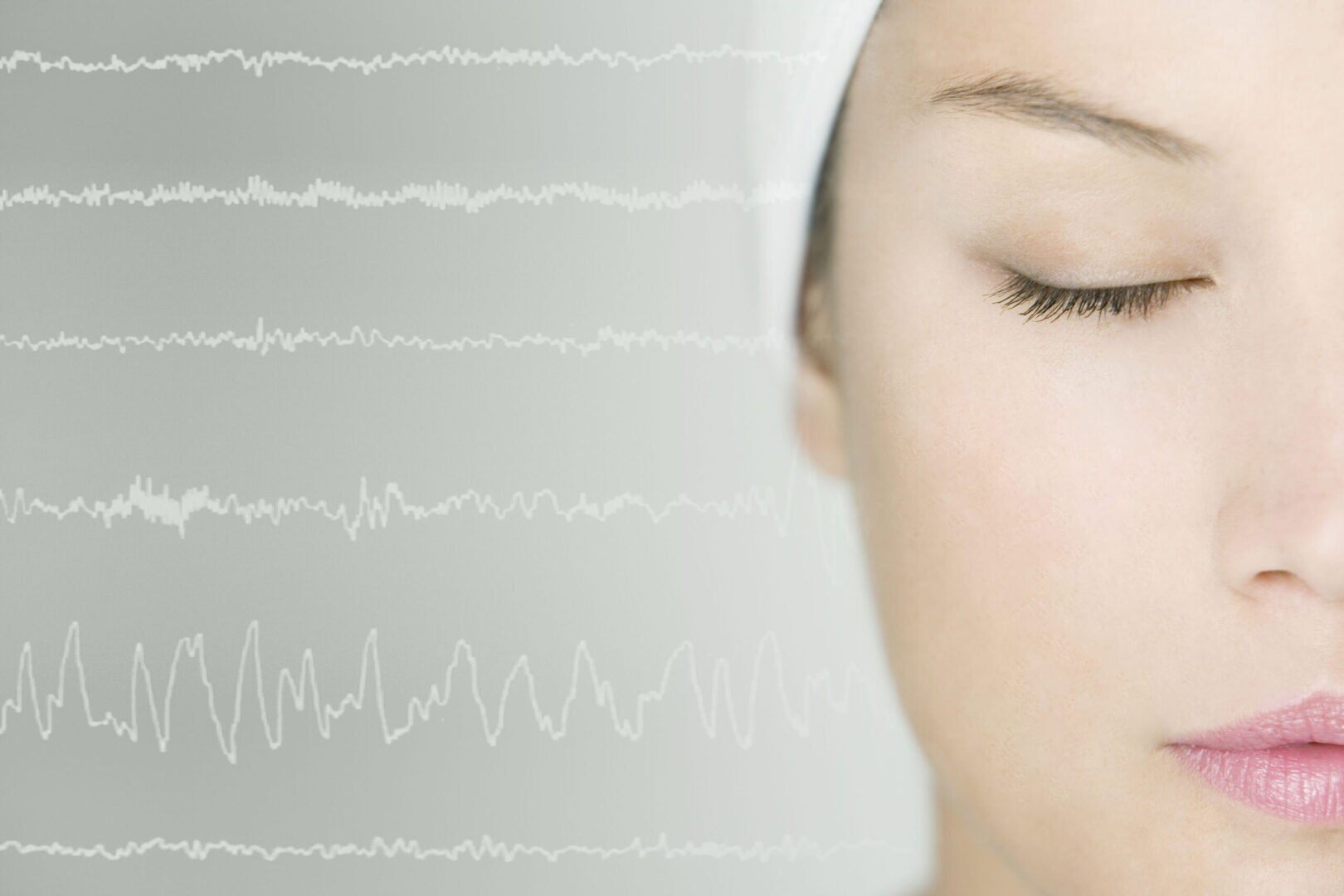Your Path to Better Sleep: Our Comprehensive Sleep Studies
We offer four specialized types of sleep studies, each designed to diagnose specific sleep disorders and provide the detailed information needed for effective treatment planning.
Polysomnography (In-Lab Sleep Studies)
The Gold Standard for Comprehensive Sleep Evaluation
Polysomnography is our most comprehensive overnight sleep study, conducted in our comfortable, hotel-like sleep center in San Antonio. This test provides detailed information about your sleep patterns, breathing, heart function, and body movements throughout the night.
What We Monitor:
- Brain wave activity (EEG) to track sleep stages and transitions
- Eye movements to identify REM sleep patterns
- Muscle activity and tension levels
- Heart rate and rhythm throughout the night
- Breathing patterns, airflow, and respiratory effort
- Blood oxygen saturation levels
- Leg movements and periodic limb movements
- Body position changes during sleep
Ideal For Diagnosing:
- Obstructive and central sleep apnea
- Restless leg syndrome and periodic limb movement disorder
- REM sleep behavior disorder
- Chronic insomnia and sleep fragmentation
- Narcolepsy (when combined with MSLT)
- Complex sleep disorders requiring comprehensive monitoring
- Sleep disorders in patients with heart, lung, or neurological conditions
Your Experience: Arrive at our sleep center in the evening and sleep in a private, comfortable room equipped with hotel-like amenities. Our certified sleep technologists apply sensors using comfortable, non-invasive methods and monitor your sleep throughout the night. Most patients sleep surprisingly well and receive comprehensive results within a few days.
Home Sleep Apnea Test (HSAT)
Convenient Sleep Apnea Screening in Your Own Bedroom
Our home sleep apnea test offers a simplified, convenient way to screen for sleep apnea from the comfort of your own bed. This FDA-approved test focuses specifically on breathing-related sleep disorders.
What We Monitor:
- Airflow through your nose and mouth
- Breathing effort from chest and abdominal movement
- Blood oxygen saturation levels
- Heart rate variability
- Body position during sleep
- Snoring intensity and frequency
Ideal For Diagnosing:
- Uncomplicated obstructive sleep apnea
- Sleep-disordered breathing in patients with classic symptoms
- Sleep apnea screening for high-risk individuals
- Pre-surgical evaluation for sleep apnea
- Follow-up testing after significant weight changes
Your Experience: Take home our user-friendly testing device with clear setup instructions. The lightweight sensors are easy to apply and comfortable to wear. Sleep in your own bed for one to three nights while the device automatically records your breathing patterns. Return the device for professional analysis by our sleep physicians.
Multiple Sleep Latency Test (MSLT)
Objective Measurement of Daytime Sleepiness
The MSLT is the gold standard test for measuring excessive daytime sleepiness and diagnosing narcolepsy and idiopathic hypersomnia. This test objectively measures how quickly you fall asleep during the day and whether you enter REM sleep during naps.
What We Monitor:
- Sleep latency (time to fall asleep) during scheduled nap opportunities
- Sleep-onset REM periods (SOREMPs)
- Sleep stage progression during daytime naps
- Overall pattern of daytime sleepiness
Ideal For Diagnosing:
- Narcolepsy with or without cataplexy
- Idiopathic hypersomnia
- Excessive daytime sleepiness of unknown cause
- Sleep disorders affecting safety-sensitive workers
- Hypersomnia following brain injury or medical conditions
Your Experience: Following an overnight sleep study, spend the day at our sleep center for four to five scheduled 20-minute nap opportunities, spaced two hours apart. Between naps, relax in our comfortable lounge area while avoiding activities that could affect your sleepiness. Our technologists monitor your brain activity during each nap to objectively measure your tendency to fall asleep.
Maintenance of Wakefulness Test (MWT)
Assessing Your Ability to Stay Awake
The MWT evaluates your ability to remain awake in quiet, low-stimulation environments. This test is often used to assess treatment effectiveness for sleep disorders or determine fitness for safety-sensitive occupations.
What We Monitor:
- Brain wave activity during structured wake periods
- Your ability to resist sleep in comfortable, quiet environments
- Sleep onset times during 40-minute wake sessions
- Overall alertness patterns throughout the day
Ideal For Evaluating:
- Treatment effectiveness for sleep apnea or narcolepsy
- Fitness for safety-critical occupations (commercial driving, aviation)
- Return-to-work clearance after sleep disorder treatment
- Legal or regulatory requirements for documented alertness
- CPAP therapy compliance and effectiveness
Your Experience: Sit comfortably in our quiet, dimly lit testing rooms during four 40-minute sessions throughout the day. You'll be asked to try to stay awake while sitting still in a comfortable chair. Our technologists monitor your brain activity to objectively assess your ability to maintain wakefulness in low-stimulation conditions.
Choosing the Right Sleep Study
Our board-certified sleep physicians will determine which test is most appropriate based on your specific symptoms, medical history, and suspected sleep disorder. Some patients may need multiple tests for comprehensive evaluation, while others may require only one specific type of study.
Factors We Consider:
- Your primary sleep complaints and symptoms
- Medical history and current health conditions
- Previous sleep study results
- Occupational or safety requirements
- Insurance coverage and practical considerations
Contact Sleep Centers of Texas in San Antonio today to schedule your consultation and determine which sleep study will provide the answers you need for better sleep and improved health.


